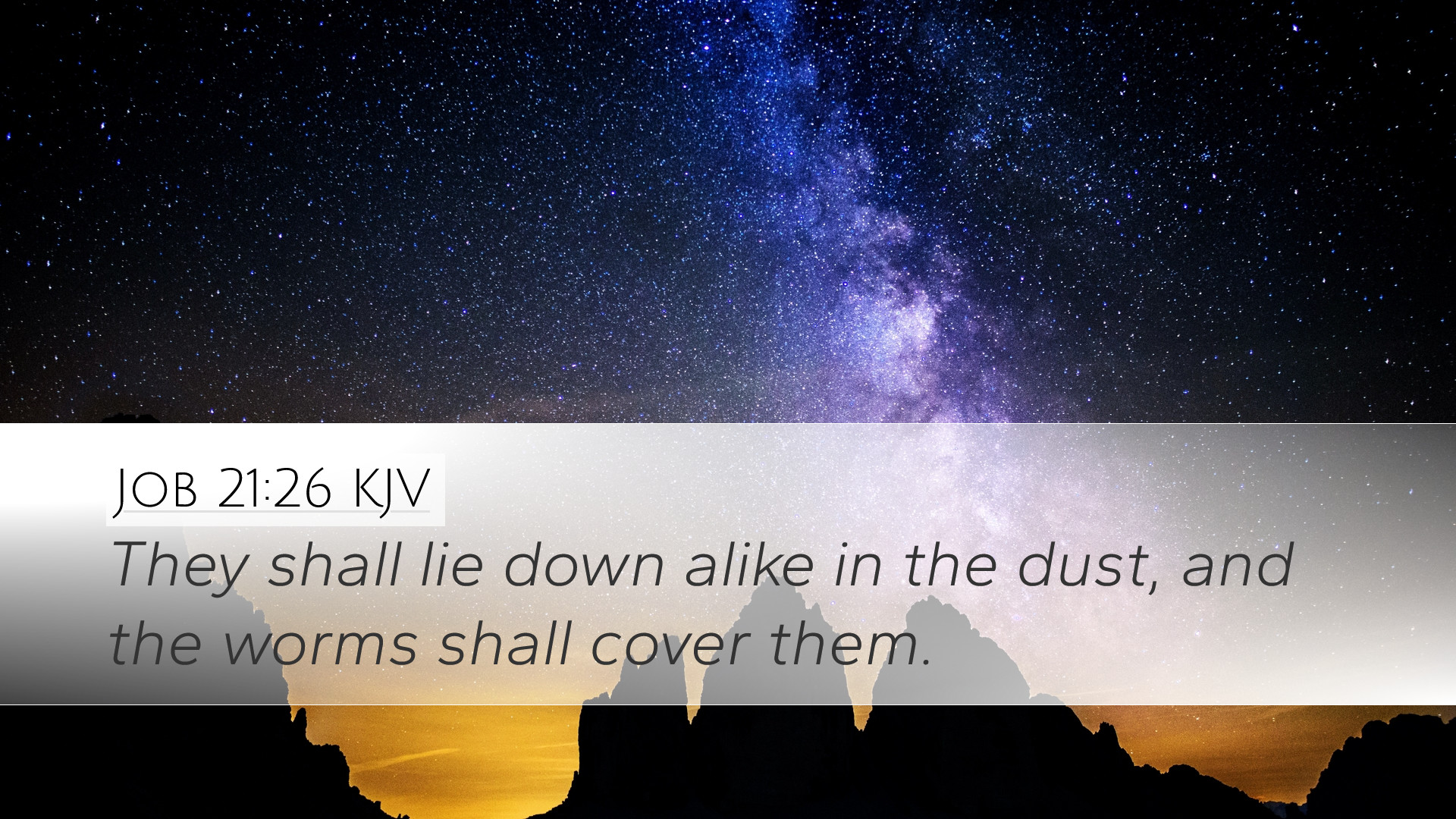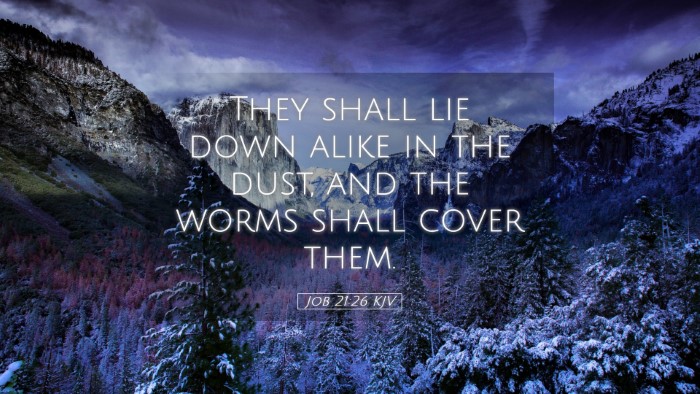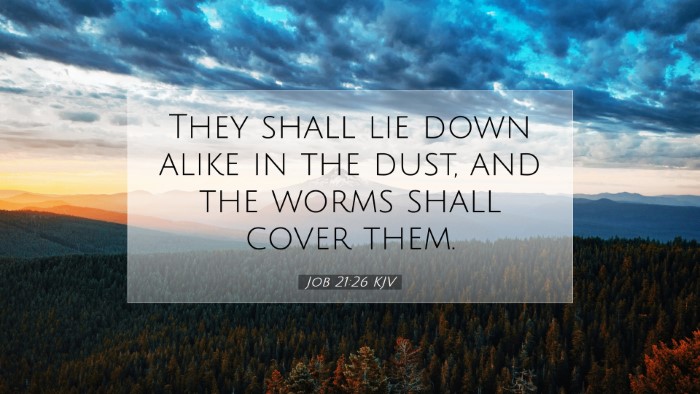Commentary on Job 21:26
Job 21:26 states: "They lie down alike in the dust, and the worms cover them." This verse encapsulates a profound truth about mortality and the equalizing nature of death, serving as a pivotal part of Job's response to his friends' assertions about the suffering of the righteous. Throughout the commentaries, various insights emerge, exploring the implications of this verse for understanding human existence, divine justice, and the circumstances surrounding death.
Contextual Analysis
Job, in this chapter, is responding to his friends, who represent a traditional view of divine justice — that prosperity and suffering directly correlate with one's righteousness and sinfulness. Job challenges this notion by asserting that the wicked sometimes prosper while the righteous suffer unjustly. It is within this discourse that Job asserts the ultimate equality imposed by death.
Matthew Henry's Insights
According to Matthew Henry, this verse highlights the universal nature of death, stripping away the distinctions that society so often places on individuals. He emphasizes that death is a great leveler, reducing everyone to dust, irrespective of their earthly status. This statement of Job reflects a keen awareness of the futility of life when looked at through the lens of death, illustrating that all humans, regardless of their moral standings, will meet the same fate.
Albert Barnes' Perspective
Albert Barnes adds that this verse underscores a critical point about the mortality shared among both the righteous and the wicked. His commentary notes that while the wicked may flourish in this life, at death they encounter the same end as the righteous. He suggests that this should lead believers to a greater appreciation of spiritual realities over temporal circumstances, encouraging them to look beyond the present life.
Adam Clarke's Commentary
Adam Clarke approaches the verse with a focus on the finality of death. He discusses how Job uses the imagery of "worms" covering the dead to convey the idea of decay and the inevitable return of the body to the earth. Clarke implies that this vivid imagery serves as a stark reminder of human mortality and the transient nature of life.
Theological Implications
Within this text, several theological themes can be discussed:
- The Equalization of Death: The verse points to the ultimate equality brought about by death, inviting reflection on God's justice and the transient nature of human affairs.
- The Nature of Divine Justice: Job’s assertion challenges the belief that prosperity is indicative of divine favor, suggesting a more nuanced understanding of how God interacts with humanity.
- Hope Beyond Death: While Job acknowledges the stark reality of death, the belief in resurrection and eternal life offers hope that transcends the grave, which can be further explored in New Testament theology.
Practical Applications for Pastors and Theologians
The insights derived from this verse can be pivotal for both pastoral care and theological teaching:
- Encouragement for the Suffering: Pastors can draw from the truth that suffering does not always correlate with divine displeasure. This can offer comfort to congregants experiencing injustice or hardship.
- Focus on Eternal Values: The reminder of mortality encourages believers to prioritize eternal values over earthly achievements, fostering a deeper faith that withstands life's trials.
- Homiletical Themes: This text serves as a powerful theme in sermons about death, hope, and the justice of God, prompting critical reflections on how we live our lives in anticipation of eternity.
Conclusion
Job 21:26 serves as a poignant reminder of the realities of life and death. Through the combined insights of Matthew Henry, Albert Barnes, and Adam Clarke, we see a multifaceted exploration of mortality, divine justice, and the hope that lies beyond the grave. This verse not only challenges traditional views of retribution theology but also calls believers to look forward to God's ultimate justice and the promise of eternal life.


